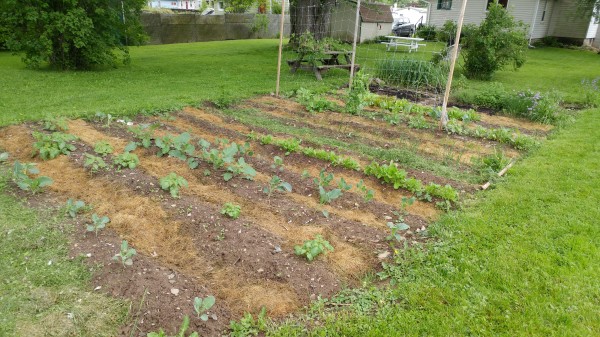-

Erin Donahue -

Christina Barkanic -

Brittany Trott -

Emily Wiley -

Jessica Reilley -

Chris Raines -

Will Nichols -

Emily Reddy -

Michele Marchetti -

Michele Frank -

James Gherardi -

Kit Henshaw -

Christina and Erin -

Kim Tait -

Erin McKinney -

Steve Spanelli -

Sam Komlenic -

Katherine Taylor Grofic -

James Eisenstein -

Jamie Oberdick -

Anna Lombardo -

LacCreta Holland -

Tony Ricci -

Local Food Journey -

Laura Young -

Kristin Camplese -

Harrison's Fresh + Local -

Danielle Matalonis -

Kristine A. -

Linda Weaver -

Naomi Elle Schwartz -

Dana Stuchul -

Cara McShane -

Brittany Smith -

Jessica Illuzzi - Frosty
-

Jessica Paholsky -

James Sechrengost -

Brad Yeckley -

Maya Althouse -

Jordan Reabold -

Kim Chase -

Maria Bryant - Alexandrea Scott
Five tips for gardening success in late spring/early summer
Posted by Jamie Oberdick on 05/31, 2017 at 08:56 AM

Gardening season is off to a little bit of a rocky start. Cool temperatures in May have put a damper on planting, as soil temperatures have hovered in the 40s to mid-50s, too low for germination and growth for many plants. A very wet month has also caused its own set of issues (State College has set a record for most days with rain in a spring).
Regardless of the weather, many of us have kicked off the summer gardening season and have plants in the ground. This early stage, when the plant is small, is vital for later gardening success. You need to protect the plant as much as possible, and keep in mind some things that will help ensure your garden is bountiful later this summer. Here’s five tips for early season gardening success.
- Don’t overwater: While young plants need steady moisture and should never be allowed to dry out, you can also overdo it. An oversaturated plant can develop root rot and other problems that can stunt the growth or even kill it. When it’s wet like it is now, don’t bother watering it, as Mother Nature is taking care of that for you.
- Keep out the four-legged pests: A hungry rabbit, deer, or groundhog can completely wipe out a lot of your garden in just a few days. While I’ve heard of people who say they just “share” their garden bounty with such critters, I’ve never found them to be much into the idea of sharing, just eating. You can remove them via a live trap, but make sure you move them several miles away and not near anyone else’s garden. There are also a variety of homemade and commercial repellents, but they often need to be reapplied after a rain and sometimes don’t work. Another solution is a fence, but be sure to bury the fence’s bottom at least a foot under the ground to keep out diggers like groundhogs and rabbits, and at least eight feet tall to keep out leapers like deer.
- Don’t forget to weed: Weeds can grow very fast and not only compete with a young plant for food, but also overwhelm them and block out sunlight when the plants are small. The best time to weed is when the soil is moist. And speaking of weeds…
- Mulch with grass clippings: If you don’t put chemicals on your lawn, mulching with grass clippings an organic way to control weeds. Grass clippings also prevent splashing of standing water during heavy rain events and add nutrients as they break down.
- Check your garden daily, if possible: A quick look-see around the garden on a regular basis is important. Look for pest damage, signs of disease, and eventually, things to harvest!
![]() Author: Jamie Oberdick
Author: Jamie Oberdick
Bio: Editor, Local Food Journey | Passionate about supporting local food in Central PA
- Our Local Food Journey comes to an end
- Winter isn’t a quiet time at the farm
- Get the taste of garden season right now by growing herbs indoors
- All you need to know about PASA’s Farming for the Future conference









NO COMMENTS